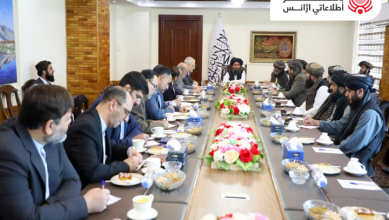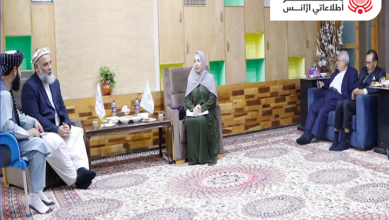
Tuesday March 1, 2016
Kabul (BNA) Afghanistan ministry of agriculture in a fresh measure announced to help beef up horticulture across the country’s 28 provinces in the upcoming year, from the last year of 26 province, with high amount of improved seeds and chemical fertilizers expected to be distributed among the farmers. As the new year is due to arrive, the ministry’s spokesman, Lutfullah Rashed said up to 14,000 acres of lands are expected to be newly taken under sapling plantation, with some 32,000 old orchards would modernly be worked on and highly be irrigated and protected. “This year, a big part of the ministry’s budget had been allocated for providing ten thousand tons of improved seeds and 20,000 tons of chemical fertilizer for an unprecedented farmers’ support all over the country’s 28 provinces in the forthcoming year,” said Rashed who added the ministry would also provide them with saffron expository pieces—each farmer with one pieces totally reaching 358.
Some 300 tractors would also been distributed among the farmers in the country’s 34 provinces in 1395, said the spokesman continuing the main issue the ministry was focusing was irrigation system. He said the ministry would create and provide some 93 irrigation projects including canals in the 34 provinces, where around the Salma Dam two big canals, with the length of 100 meters are expected to be created irrigating some 75, 000 hectares. But, the project would take $45 million expected to be funded by the World Bank (WB), which would cover some 16 provinces, where the project for popularization of dropping water for irrigation are underway. 217 expository pieces are also expected to be provided for the farmers in some provinces, where they would be trained how to plant melons and watermelons and how to protect them, said the spokesman. Raisin houses reaching 240 units would be created in different fields in the forthcoming solar year, with 792 new greenhouses to cover all the farmers and horticulturists’ products, according to Rashed. The program would cover some 2,000 farmers and horticulturists, with the ministry of agriculture helping them better work on their farmlands and orchards and effectively use them, said the spokesman.
The ministry of agriculture and livestock is planned to establish 678 onion stocks in both Kabul and Parwan provinces, in the next solar year in two schedules—each one costing 224,000 Afghanis, while the cooperative one would take 700,000 Afghanis, with free of charges for the two provinces farmers. The stocks would help the country’s highly used onions’ wastage to reach to at least 2 percent in 1395 from that of over 40 percent in 1394 as well as 275 onion stocks are expected to be constructed. In Bamyan province, the ministry would also provide 225 potato caches, expected to be put in use as soon as possible. Related officials also reported about the New Year’s Eve expected to be held in Kabul’s Badam Bagh, where up to 200 pavilions are expected to be erected, continuing for four days, as the first day of the New Year arrives.
Women, with handicrafts skills would also be helped show their products at the show, would be visited by tens of thousands of people including foreigners. Over 60,000 people have visited the Fall Agricultural show in the outgoing year, with more than the number hoped to visit in the upcoming year. Moreover, 31, 9 million saplings are expected to be planted by the arrival of the next year, according to the spokesman who added the program would be started in Dalw 15 and completed by the end of Hoot. He asked the organs concerned and the people for not hesitating from any efforts to do for properly irrigation and protection of the sapling in their areas, as such coordination would help environment kept clean and the air pollution prevented. According to him, agricultural land usurpation is a critical challenge in the country, with the ministry of agriculture losing high parts of farmlands in different parts of the country, where the local powerful individuals. He said the ministry of agriculture could do nothing in this field, but the security organs are obliged to do their best in returning the lands. He said the security entities could do their best with the ministry to return high parts of the farmlands, but wide parts are still controlled by the local powerful people.
Shukria Kohistani




